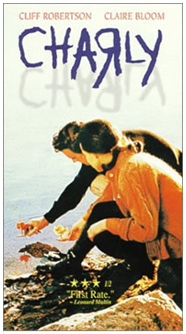by Bob Glowacki
I am pleased to introduce Erin Raber, Children Services Director here at Easter Seals Southeast Wisconsin, as a guest blogger today.
A more meaningful life
by Erin Raber
Tasha Rieck, one of the Board Certified Behavior Analysts on the Southeast Wisconsin Children’s Services Autism Team, won a well-deserved professional award from our chapter of the Wisconsin Association for Behavior Analysis for her work with a local client.
Local medical centers were at a loss after an 18-year-old with dual diagnoses of hydrocephaly and autism underwent incredibly invasive shunt surgery. The young woman refused to wear her glasses and took to self injurious behaviors that involved severe head hitting and throat damage due to significant screaming outbursts. Numerous drugs changes were prescribed in an attempt to control the negative behaviors with no success.
The family was at a loss and desperate to protect their daughter from hurting herself. As the young woman transitioned home after a lengthy stay at an inpatient center, a viable solution was needed — and fast.
Enter Tasha Rieck. A Board Certified Behavior Analysts, Tasha is skilled in the science of behavior change and began consulting with the family. After thorough observation and identification of the function and maintaining factors of the behaviors, Tasha determined that this young woman’s serious maladaptive behavior was maintained by several functions across environments, including head banging as a way to relieve pain from headaches. Tasha began implementing a process of systematic desensitization in order to help the participant wear her glasses.
Within 10 weeks, the participant was wearing her glasses all day without any aggressive behaviors towards removal of her glasses. This resulted in a decrease in her self injurious behavior, and allowed Tasha to more specifically target the remaining problem behaviors. By helping her decrease her severe self injurious behaviors, Tasha has allowed this young woman to live a more meaningful life. Her neurologist was able to remove many of her sedating medications, which allows her to take fewer behavior management medications, too.
Fewer negative behaviors is also significant for the family. Her parents no longer stress and worry about their daughter injuring herself, and the relief this alone offers is invaluable. They’ve stopped the struggle with the guilt and helplessness of not knowing what to do to help their daughter, and they are no longer considering long-term out-of-home care. They can now truly operate as a family and enjoy day-to-day activities (such as dinner) together.
And lastly, for the community, this young woman can now go out in public, be successful, and function in a fashion that does not draw additional attention to herself or set her further apart. She is able to live and play, and she will hopefully someday work in her local community.
This is just the beginning of this young woman’s story, and as we complete our work and transition her services, we eagerly await updates from her family on her continued progress.
The expertise and the hard work and dedication of our staff offers help, hope, and answers to families in the midst of life’s most challenging moments. This blog post is just one example of the progress our clients, from birth through adult, are making here at Easter Seals Southeast Wisconsin.
Congratulations to Tasha Rieck for such a well-deserved award. We’re proud of you!







 Al Pacino won an Oscar for Scent of a Woman, Dustin Hoffman for Rainman, Daniel Day-Lewis for My Left Foot, and John Voight for Coming Home. Marlee Matlin won best actress for Children of a Lesser God, and plenty of actors and actresses have been nominated for their roles portraying a person with a disability too: Russell Crowe was nominated for best Actor in A Beautiful Mind, Salma Hayek was nominated for best actress in Frieda, Mary McDonnell was nominated for best actress in Passion Fish and Judi Dench for best supporting actress in Iris.
Al Pacino won an Oscar for Scent of a Woman, Dustin Hoffman for Rainman, Daniel Day-Lewis for My Left Foot, and John Voight for Coming Home. Marlee Matlin won best actress for Children of a Lesser God, and plenty of actors and actresses have been nominated for their roles portraying a person with a disability too: Russell Crowe was nominated for best Actor in A Beautiful Mind, Salma Hayek was nominated for best actress in Frieda, Mary McDonnell was nominated for best actress in Passion Fish and Judi Dench for best supporting actress in Iris.
 On Tuesday, October 9, 2012, the Secretary of Wisconsin’s Department of Workforce Development presented
On Tuesday, October 9, 2012, the Secretary of Wisconsin’s Department of Workforce Development presented 
 The vice presidential debate is tonight, Thursday, October 11 at 9:00 p.m. EST. The debate will be broadcast on all national news networks, and with less than one month until Election Day, it is more important than ever to research and pay close attention to the issues affecting people with disabilities on the state and federal level.
The vice presidential debate is tonight, Thursday, October 11 at 9:00 p.m. EST. The debate will be broadcast on all national news networks, and with less than one month until Election Day, it is more important than ever to research and pay close attention to the issues affecting people with disabilities on the state and federal level. In my other life, I’m a published author. My children’s book
In my other life, I’m a published author. My children’s book  I traveled to Montana last month to give an
I traveled to Montana last month to give an  The new TV season has started, and it seems
The new TV season has started, and it seems